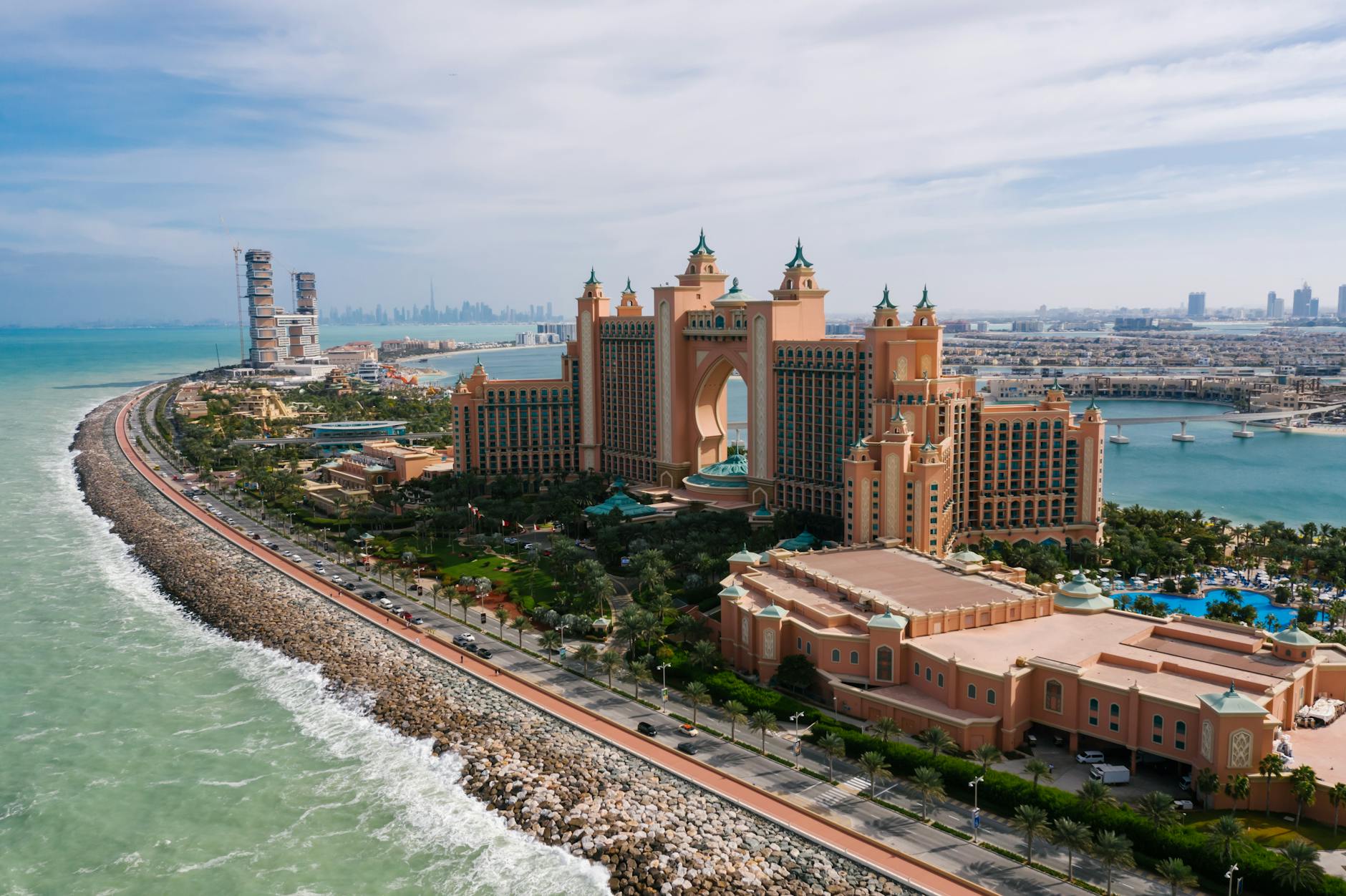Dubai medical tourism has positioned the city as a premier destination for patients seeking high‑quality, cost‑effective healthcare across the Middle East and beyond. Its unique blend of world‑class medical facilities, a supportive regulatory environment, and a global marketing push has made Dubai a top choice for expats and international travelers alike. This article explores how Dubai leads the region in medical tourism, the factors driving its success, and what the future holds for one of the UAE’s fastest‑growing sectors.
—
Why Dubai Stands Out Among Regional Medical Tourism Hubs
Dubai medical tourism enthusiasts are drawn to a range of distinct advantages that set the city apart from other regional leaders such as Doha, Riyadh, and Beirut. These include:
– JCI‑Accredited Hospitals: Dubai hosts 13 hospitals accredited by the Joint Commission International, a globally recognized quality seal indicating that patient care meets rigorous international standards.
– Integrated Health‑Tourism Ecosystem: The city’s health authorities, private sector, and tourism ministries collaborate on streamlined patient journeys—from visa issuance to post‑treatment rehabilitation.
– Strategic Geographic Position: Located at the crossroads of Asia, Africa, and Europe, Dubai serves patients from over 170 countries who travel on convenient, high‑speed routes.
– Robust Regulatory Frameworks: The Ministry of Health and Prevention’s Medical Tourism Regulatory Framework (MT‑RF) clarifies practitioner licensing, facility standards, and consumer protection, providing patients with confidence in their care choices.
– Patient‑Centric Marketing Platforms: Digital hubs like Medical Dubai and the DHAFD portal give international patients transparent, multilingual access to pricing, treatment options, and patient testimonials.
These elements create a magnetic pull for foreign patients and make Dubai a benchmark for medical tourism excellence in the region.
—
Historical Growth: A Timeline of Dubai’s Medical Tourism Expansion
| Year | Key Milestone | Impact |
|——|—————|——–|
| 2010 | Launch of Dubai Health Authority (DHA) | Established the first unified regulatory body for health standards. |
| 2012 | First JCI accreditation for a Dubai hospital | Raised global credibility for UAE healthcare. |
| 2015 | Dubai Medical Tourism Regulatory Framework (MT‑RF) | Legalised patient protection and quality assurance. |
| 2017 | Dubai Medical Tourism Summit | Gathered over 2,000 healthcare leaders to strategise growth. |
| 2020 | COVID‑19 Pandemic Response | Dubai’s health system seen as resilient; patient flows rebounded by 2021. |
| 2022 | Introduction of “Medical Dubai” online platform | Unified patient booking portal for over 30 accredited hospitals. |
| 2023 | Dubai targets 50,000 foreign patients annually by 2025 | Commits to $9 billion revenue potential. |
The progression shows steady investment, regulatory clarity, and a strong commitment from the government to strengthening Dubai’s position as a medical tourism capital.
—
The Economic Impact of Medical Tourism in Dubai
– Revenue Generation: In 2021, Dubai’s medical tourism sector contributed an estimated AED 3.2 billion to the national economy, according to a Joint DHA and DED review.
– Employment: More than 4,500 direct jobs were created in hospitals and ancillary services, with indirect employment spiking in hospitality, logistics, and travel.
– Medical Tourism’s Share of GDP: While the UAE’s overall GDP was AED 1.4 trillion in 2021, Dubai’s healthcare tourism formed roughly 0.2% of the regional GDP, with growth expectations of an additional 1.5% by 2030.
These economic metrics underscore how medical tourism supports Dubai’s diversification strategy beyond oil and real estate.
—
Core Medical Specialties Driving Dubai’s Popularity
Patients are drawn to a wide array of specialties that combine cutting‑edge technology with affordable pricing. The following areas tend to be the most requested:
1. Cosmetic & Reconstructive Surgery
– Specialties: Liposuction, rhinoplasty, skin resurfacing, breast implants.
– Why Dubai? Renowned plastic surgeons collaborate with top CAD and 3D‑printing labs.
2. Oral & Dental Care
– Specialties: Implantology, orthodontics, periodontics.
– Why Dubai? Clinics offer international one‑stop services and post‑treatment dental care in tourist-friendly locations.
3. Orthopedics & Sports Medicine
– Specialties: Joint replacement (knee, hip), arthroscopic surgeries, elbow procedures.
– Why Dubai? Joint procedural volume and advanced robotics like MakoSurge.
4. Cancer & Oncology
– Specialties: Radiotherapy, chemotherapy, targeted nanomedicine.
– Why Dubai? Tertiary care centers such as “Dubai Hospital” have comprehensive oncology units with international clinical trials.
5. Infertility & Reproductive Medicine
– Specialties: IVF, endometrial transplant, pre‑implantation genetic screening.
– Why Dubai? Regulations that protect patients’ data and choice, with clinics ranked in the top five worldwide.
6. Cardiology & Cardiothoracic Surgery
– Specialties: Heart bypass, valve repair, minimally invasive heart failure management.
– Why Dubai? Partnerships with American and European cardiology centres.
7. Bariatric & Metabolic Surgery
– Specialties: Gastric bypass, sleeve gastrectomy.
– Why Dubai? Lower complication rates attributed to meticulous patient selection protocols.
For each specialty, patients benefit from after‑care in Dubai’s thriving hospitality sector, allowing for recuperation in a culturally and recreationally enriching environment.
—
Dubai’s Patient Journey Framework: From “First Contact” to “Homeward Bound”
Dubai’s medical authorities have formalised a patient journey that reduces friction and enhances safety. The framework typically follows these steps:
1. Pre‑Service Verification
– Patients consult international patient coordinators (via Dubai’s “Medical Dubai” portal).
– Required medical records are verified against MOHAP’s secure database.
2. Visa & Travel Arrangements
– Medical Tourist Visa: A 30‑day visa that is effortlessly attached to treatment agreements.
– Travel Partners: Partnerships with airlines — Emirates and Etihad — provide discounted travel to regional patients, with health‑certification on board.
3. Hospital Registration & Consent
– The hospital’s compliance officer checks JCI and Ministry‑approved credentials.
– In‑house digital consent is recorded in an encrypted patient management system (e.g., eMediTrack).
4. Treatment & Recovery
– A laser‑guided standard operating procedure (SOP) ensures precision in elective surgeries.
– Post‑operative monitoring uses real‑time telemetry with 24‑h nurse coverage.
5. Accommodation & Rehabilitation
– Hospital‑Affiliated Villas: Some hospitals, like Emirates Clinic, have dedicated villas that incorporate physiotherapy suites and geriatric therapy rooms.
– Community Support: Concierge services help schedule local clinics for follow‑up visits.
6. Discharge & Follow‑Up
– Tele‑medicine follow‑ups in the UAE guarantee continuity of care.
– Exportable health records allow easy communication with home‑country physicians; the data is fully compliant with GDPR and UAE Personal Data Protection Law.
This structured flow has led to a reported patient satisfaction rate of 95% in DHA’s annual surveys, topping the region.
—
Dubai’s Legal and Regulatory Protections for International Patients
a. Medical Tourism Regulatory Framework (MT‑RF)
The MT‑RF was drafted by the Ministry of Health and Prevention and is anchored on three pillars: safety, transparency, and consumer rights. Key provisions include:
– Certification of Medical Facilities: All foreign‑certified hospitals must re‑apply annually for JCI accreditation.
– Clinical Governance: Mandatory incident reporting and national audit trails.
– Insurance Requirements: Patients must present valid health insurance or prepaid treatment plan; insurers are required to file claims through a central claim registry.
b. Patient Rights Charter
Patients are entitled to:
– Right to Information: Independent, multilingual patient brochures and web portals.
– Right to Redress: An independent patient‑and‑family council that mediates disputes.
– Right to Data Security: Strict adherence to the UAE’s Personal Data Protection Law (PDPL) and ISO 27001 standards for health data.
These safeguards are highlighted in the “Dubai Medical Tourism Guide” (2023), a joint publication by the DED and DHA, which is updated annually.
—
Strategic Partnerships Driving Growth
– Dubai Healthcare City (DHCC): 1.1 million square feet, hosting 6,000 staff across 25 hospitals.
– Global Medical Summit Partnerships: Seasonally aligned with Dubai Health Summit events, the city attracts world leaders from the International Society of Oncology (ISO) and the American Association for Dental Research (AADR).
– Insurance Consortium: UAE Insurance Co. (UAIEC) offers “Medical Tourism” packages with 30‑day coverage upon arrival.
– Tourism & Flights: Emirates and Etihad have exclusive medical tourism collaborations that include “health‑e‑visa” smart boarding passes.
Through these collaborations, Dubai leverages both public and private sectors to maintain a high‑quality, patient‑oriented ecosystem.
—
Dubai vs. Other Regional Hubs: Comparative Snapshot
| Metric | Dubai | Doha | Riyadh | Beirut |
|——–|——-|——|——–|——–|
| JCI‑Accredited Hospitals | 13 | 4 | 6 | 2 |
| Foreign Patient Arrivals (2022) | 146,000 | 85,000 | 73,000 | 42,000 |
| Avg. Cost Savings vs. Western Market | 50‑70% | 40‑60% | 30‑50% | 20‑40% |
| Post‑treatment Tourism Offering | 10‑Hour Wellness Programs | 8‑Hour Female‑Only Spa | 4‑Hour Recreation Pass | 3‑Hour Cultural Tours |
| Regulatory Transparency | 95% Satisfaction Score | 88% | 84% | 79% |
| Visa Process Length | 24 hrs (online) | 48 hrs (online) | 72 hrs (paper) | 48 hrs (online) |
While each city has its own strengths, Dubai’s balanced mix of affordability, high standards, and a diversified cultural scene grants it an unchallenged lead within the region.
—
Patient Testimonials: Real Stories of Healing and Hospitality
– María G. from Spain: “The contract was signed through a virtual meeting with the hospital’s patient liaison. I arrived within two days, did a routine cranial bone plate surgery, and was discharged with a post‑surgery package that included a spa session at the hospital’s hotel. On the way back, I also attended a guided tour of the Dubai Marina.”
– Usman H. from Saudi Arabia: “I went for a heart bypass at Dubai Hospital. The JCI standards were evident in every step, and the dedicated nurse‑whistle system offered 24‑hour support. My entire stay was under the umbrella of the same medical insurance that covered my travel, treatment, and even a week of leisure.”
These accounts illustrate the depth of integration that exists in Dubai’s medical tourism model. The blend of clinical excellence with logistics and hospitality differentiates the city from regional peers.
—
Emerging Trends: The Next Chapter for Dubai Medical Tourism
1. Digital Twin & AI‑Driven Diagnostics
– Dubai hospitals are piloting AI systems that model patient anatomy before surgery, reducing operating times by 15%.
– Digital twins enable remote experts from abroad to review surgical plans in real time.
2. Genomic Medicine & Precision Therapies
– Partnerships with GeneCan (a UAE‑based genomics firm) are establishing precision oncology clinics that match patients with clinical trials.
3. Well‑Being Integration
– Dubai’s “Health & Holistic Recovery” offering merges conventional treatment with mindfulness, physiotherapy, and nutrition—targeting a 20% uptick in popularity over 2025.
4. Sustainable Healthcare Infrastructure
– The National Development Plan (2023‑2030) includes green certifications for all new hospitals: RECCO 3.0 standards for energy use and waste management.
5. Cross‑Border Tele‑Surgery Operations
– Pilot programs with European centers enable real‑time surgical guidance, expanding Dubai’s role from a treatment destination to a surgical solutions provider.
—
Safeguarding Growth: Risk Management and Continuous Improvement
Dubai’s robust governance model actively addresses risk factors:
– Active Surveillance System: The DHAFD collects anonymised data to benchmark error rates.
– International Standardization: All hospitals maintain protocols aligned with ISO 9001:2015 for quality management.
– Transparency Publishing: Annual “Medical Tourism Performance Report” is available to the public, including patient reviews and incident rates.
The proven risk management approach ensures that the high volume of patients does not compromise safety standards.
—
Practical Guide for Potential International Patients
When considering Dubai for medical treatment, patients should take the following steps:
1. Research Accredited Facilities – Verify JCI status via the Dubai Health Authority website.
2. Engage a Certified Patient Coordinator – Many hospitals offer free pre‑visit consultations.
3. Check Insurance Coverage – Confirm that your insurer accepts Dubai’s “Medical Tourism” procedures.
4. Obtain Relevant Documentation – Gather all prior medical records; many facilities accept digital uploads.
5. Plan for Recovery Time – Explore hospital‑affiliated wellness programmes for physiotherapy and relaxation.
6. Stay Informed of Regulatory Updates – Sign up for the Dubai Health Authority newsletter for the latest visa and treatment guidelines.
These best‑practice steps enable a smoother, more informed patient journey.
—
Conclusion: Dubai’s Ascendancy in Medical Tourism
Dubai medical tourism continues to thrive, anchored by an unyielding commitment to quality, transparency, and a patient‑centric ecosystem. With an abundance of JCI‑accredited hospitals, a clear regulatory framework, and strategic partnerships that blend health care with hospitality, the city remains unmatched in the region.
For residents, expats, and business professionals in the UAE, Dubai’s reputation as a safe, accessible, and state‑of‑the‑art destination for medical care is more than a title—it’s a reality supported by hard data and verified satisfaction. As Dubai builds on its legacy of innovation and embraces new technologies, the city is poised to maintain its leadership role and set new benchmarks for quality medical tourism worldwide.









